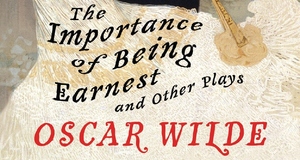Literary Analysis: Turn of the Screw
By
2009, Vol. 1 No. 11 | pg. 1/1 In “The Turn of the Screw,” Henry James presents to the reader a story that seems as factual as the recorded ghost sightings that were a major influence for this novel. However, upon further investigation, the reader may begin to wonder about the narrator’s reliability. Considering the setting in which the story is told, the narrator’s own confessions, and pieces of the unconscious’ effect emerging, the governess can be identified as an unreliable narrator. Many people focus on the governess’ story instead of the introduction for their analysis of “Turn of the Screw.” Yet this novel is a frame story, and much enlightening information can be found in Douglas’s own story and the circumstances in which he tells the story. The beginning of the story finds several vacationing families telling ghost tales as entertainment. The reader is not led to believe that any of these tales being told are factual. However, when Douglas offers his story, the reader is expected to understand that the governess is narrating a true account. What makes this story different from the others being told? Is it because the story is narrated by an unknown individual or is it because the story is read from her written statement? (The fact that the ghost tale is put down in words seems to give it more credibility.) Douglas could have easily used the way in which the story was told to convince the listeners that this was one ghost story that was more than just entertainment.While determining whether or not the governess is credible, the reader can find many quotes where the governess is described by others or – mostly – by herself. The narrator at the beginning of the novel describes how many of the vacationers “draw the inference” that Douglas was in love with the much older governess, a situation very similar to the governess’s relationship with Miles (James 24). The governess also makes mention of obsessions, questioning herself at one point as to how she will “retrace…the strange steps of [her] obsession” (James 80). She frequently makes mention of her vivid imagination and the emotions that she allows to actively control her thoughts, even admitting to Mrs. Grose that she is “rather easily carried away” (James 31). According to an essay on Victorian governesses, being carried away was something to be expected of a young woman with a stressful profession. Anna Jameson explains that a young governess will typically be “nervous and over-anxious” (131). Mary Maurice, while exploring some of the prejudices against governesses, describes stereotypes that are similar to the governess’s behavior. She states that the governesses frequently become the children’s “corrupter” and that the “sons were in some instances objects of notice” (135). The idea of governesses warping young minds was predominant in the Victorian culture and would have undoubtedly influenced James’ construction of the governess’s character. In “The Turn of the Screw,” the governess makes a surprising assumption: the ghosts intend to “get hold of the [children]” (James 57). This seems to be a very illogical theory considering that not once before in her trail of conscious thoughts has she mentioned speculations on this idea. Yet, perhaps the answer lies in the unconscious. Many of the accusations the governess brings up against the ghost are faults which are also evident in the ghost. In fact, the governess seems to be unconsciously projecting her most terrible thoughts and faults upon these ghosts and, then, “condemning [the apparitions] for [this], in order to deny that [she has] it [herself]” (Tyson 15). Projection may explain what role the ghosts play in “Turn of the Screw,” but it does not explain why the governess feels she needs to use projection as a defense. From what is she defending herself? The ego is the conscious “product of conflicts” between the superego – what society restricts us from having – and the id – what we want. The governess appears to be experiencing an inner battle that is affecting her perception of reality. She has fallen in love with a boy much younger than herself. Society sees this pedophilic behavior as corrupting the child. The governess’s conscience tells her that she must reform her ways. Her id tells her that she is right in pursuing what she desires. In “The Turn of the Screw,” the governess is using an unconscious means of defense, projection, to protect herself from her superego, while continuing to hold onto her sexual desires. “The Turn of the Screw” is told in a setting that at once begins to make the reader doubt the story’s validity. The narrator frequently hints that how she perceives events can be highly influenced by her imagination and emotions. It is questionable that anyone besides the governess sees the ghosts. This seems to add to the case that the apparitions are simply scapegoats created by the governess to carry any blame projected on them. It is because of her inability to grasp onto reality and to obtain any balance between superego and id that the governess can be identified as an unreliable narrator.
James, Henry. Beidler, Peter.,ed. The Turn of the Screw. 2nd ed. Boston: Bedford/St.Martin’s, 2004. Jameson, Anna. “The occupation of governess is sought merely through necessity.” The Turn of the Screw. 2nd ed. Boston: Bedford/St.Martin’s, 2004. Maurice, Mary. “There is a strong prejudice against governesses.” The Turn of the Screw. 2nd ed. Boston: Bedford/St.Martin’s, 2004. Tyson, Lois. Critical Theory Today: A User-Friendly Guide. 2nd ed. New York: Routledge. Suggested Reading from Inquiries Journal
Inquiries Journal provides undergraduate and graduate students around the world a platform for the wide dissemination of academic work over a range of core disciplines. Representing the work of students from hundreds of institutions around the globe, Inquiries Journal's large database of academic articles is completely free. Learn more | Blog | Submit Latest in Literature |


















